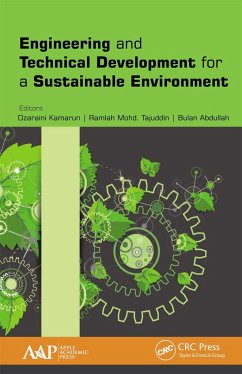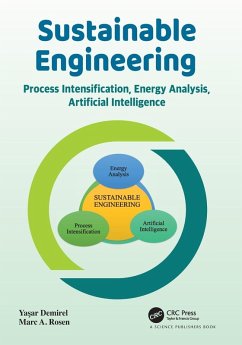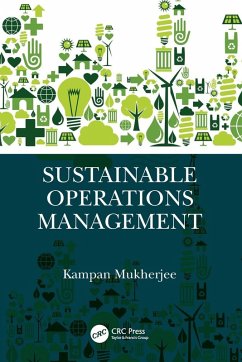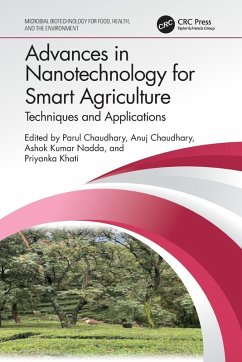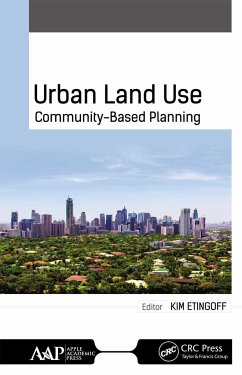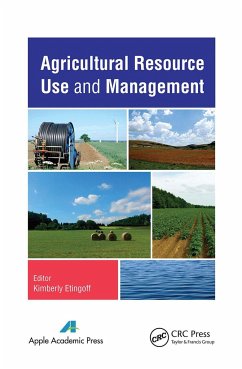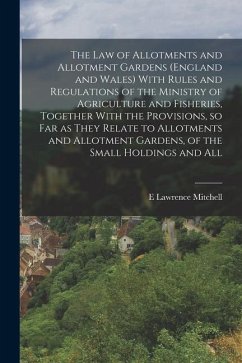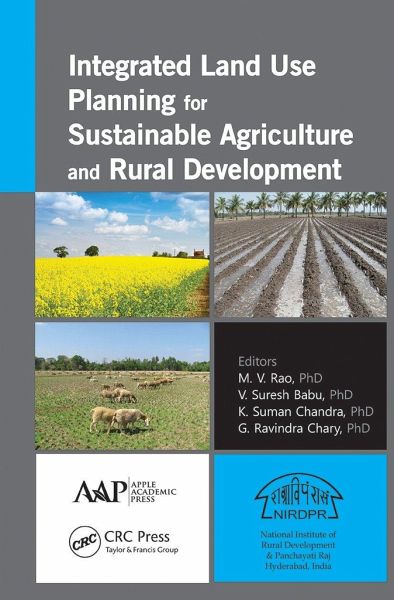
Integrated Land Use Planning for Sustainable Agriculture and Rural Development

PAYBACK Punkte
50 °P sammeln!
Land represents an important resource for the economic life of a majority of people in the world. The way people handle and use land resources impacts their social and economic well-being as well as the sustained quality of land resources. Land use planning is also integral to water resources development and management for agriculture, industry, drinking water, and power generation. This valuable work brings to the forefront the state of practice of land use planning in India, highlighting governmental programs and research with wide-ranging chapters on important topics. Covering various agro-...
Land represents an important resource for the economic life of a majority of people in the world. The way people handle and use land resources impacts their social and economic well-being as well as the sustained quality of land resources. Land use planning is also integral to water resources development and management for agriculture, industry, drinking water, and power generation. This valuable work brings to the forefront the state of practice of land use planning in India, highlighting governmental programs and research with wide-ranging chapters on important topics. Covering various agro-ecosystem, including irrigated, rainfed, coastal, semi-arid, arid (drylands), and hill and mountain (temperate) regions, this volume discusses a variety of issues related to sustainable agriculture and rural development. Chapters address the following questions: ¿What are the sources, scales, and quality of land resources and land use data for efficient planning ¿ Which are the agroecological systems hot spots that are have been degraded? How can these areas be rejuvenated in terms of quality? ¿ What should be the unit of planning for a holistic approach for the conservation and efficient use of natural resources at different administrative levels and domains? ¿ What are the roles of state land use boards and district planning committees? ¿ How can various programs be integrated and implemented by central and state agencies? ¿ What are the technologies, new policies, and support systems required to address sustainable land use? ¿ What are the legal issues? ¿ What should be the role of communities in planning for poverty alleviation and integrated planning for sustainable agriculture based livelihoods? ¿ What is the role GIS in sustainable agriculture and rural development? With high population growth, endemic poverty, and weak existing institutional capacity for land management, India (and other regions of the world) require strong scientific and strategically important land use policies and methods for sustainable development. This book helps to show the way. This volume is being published in association with the Centre for Agrarian Studies and Disaster Mitigation of the National Institute of Rural Development and Panchayati Raj (NIRD and PR).





